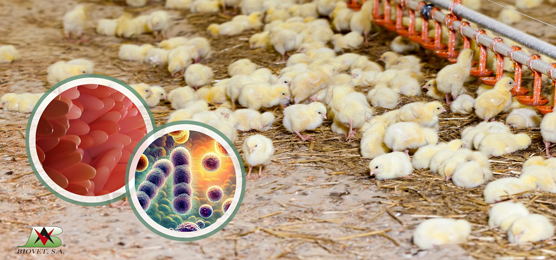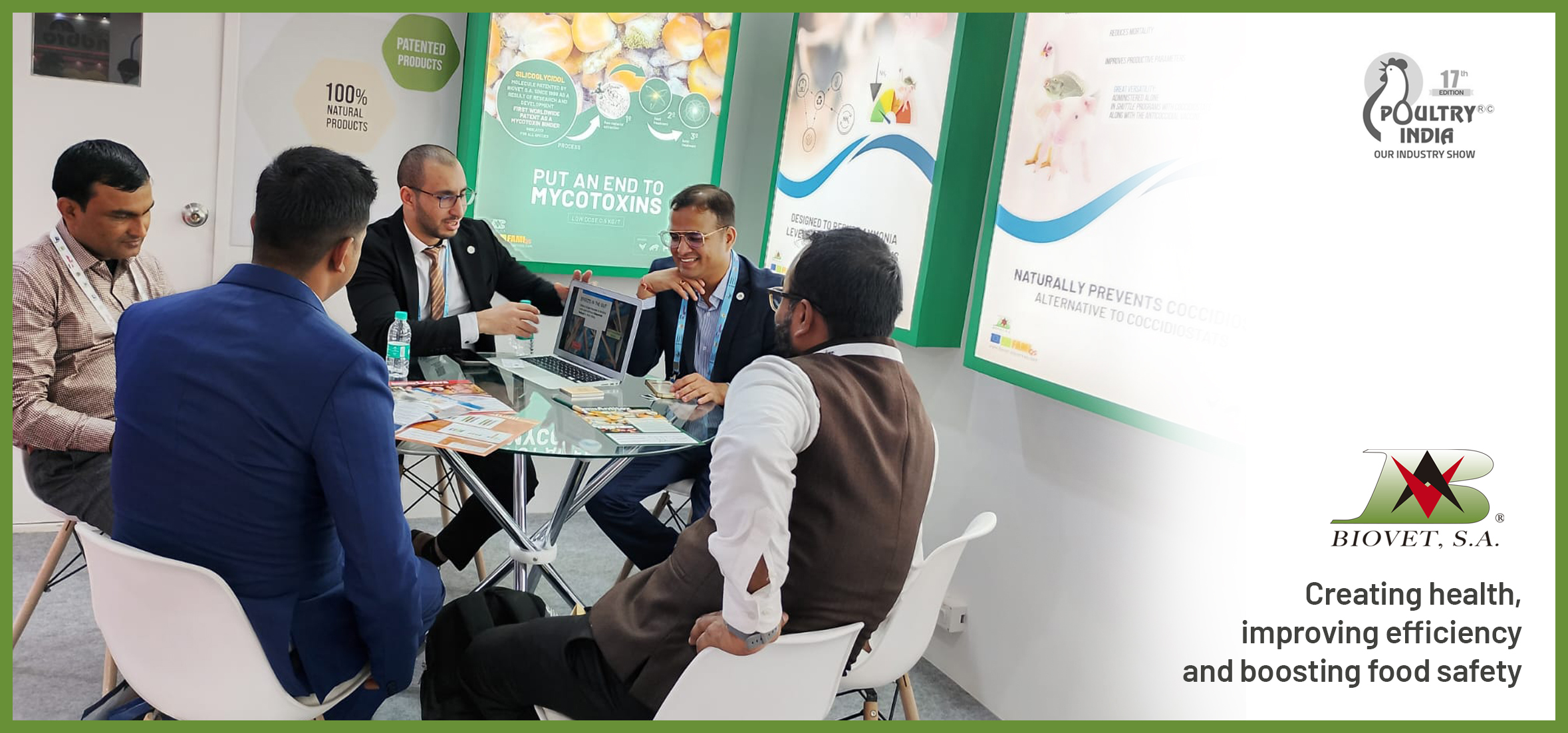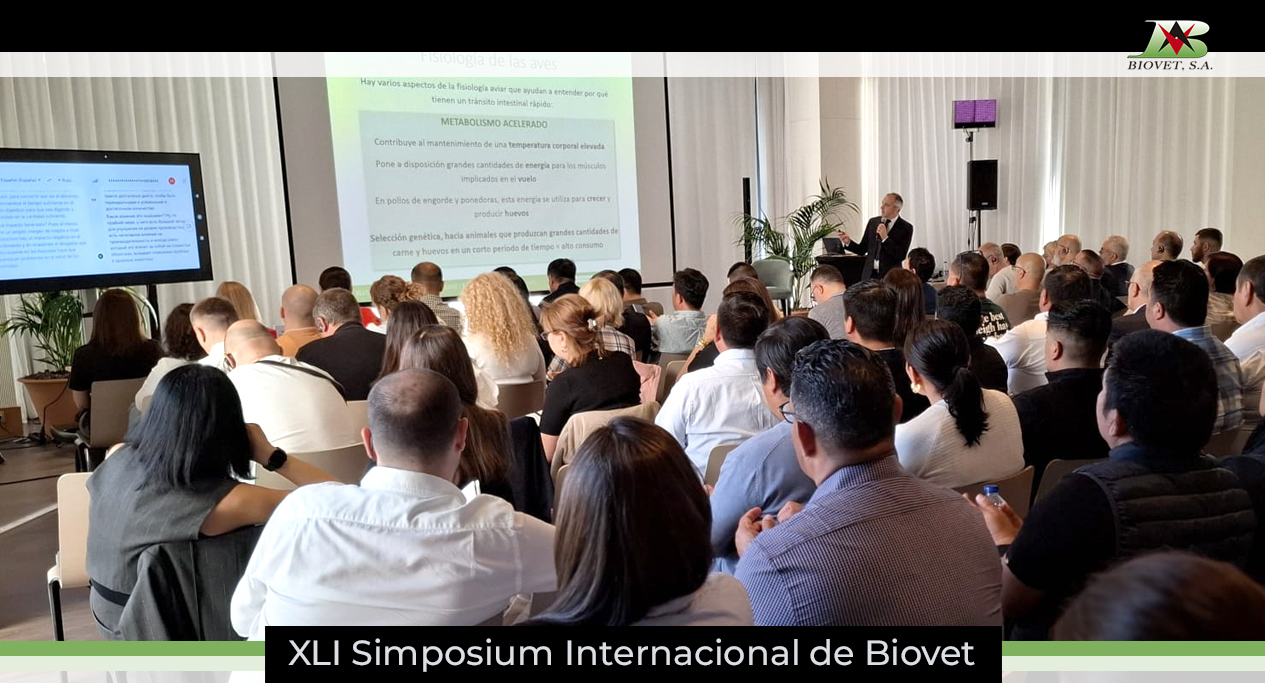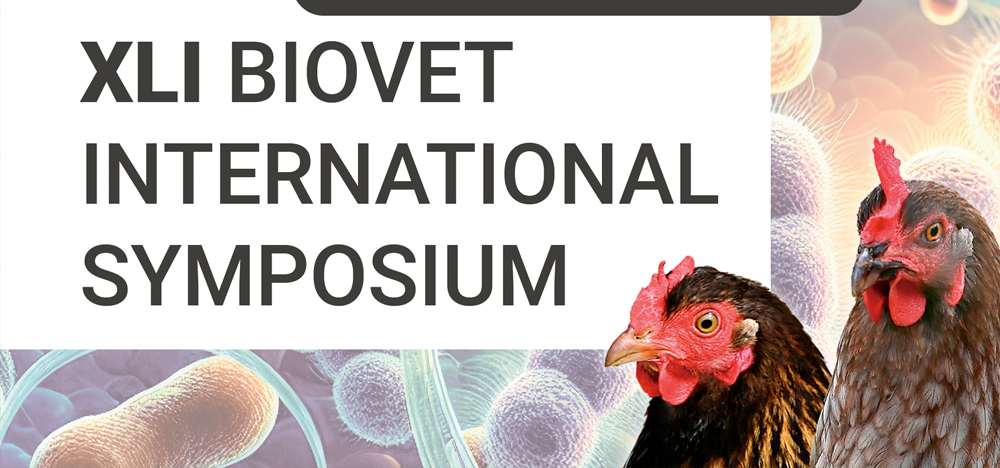Intestinal challenges in broilers and their impact on productivity
Intensive poultry production constantly faces a major challenge: maintaining optimal intestinal health in broilers, even under conditions that favour the development of dysbiosis and/or subclinical enteritis. These disorders not only affect animal welfare, but also have a direct impact on feed conversion, growth, flock uniformity and overall farm profitability.
Among the various risk factors, one of particular importance is the presence of high levels of antinutritional factors in the diet. These can accelerate intestinal transit, reduce digestibility, and promote the growth of pathogenic flora such as E. coli, to the detriment of beneficial bacteria such as Lactobacillus.

The impact of intestinal challenges
The most common effects observed in farms affected by these challenges include:
• Reduced intestinal retention time, which decreases the capacity for nutrient absorption and assimilation.
• Intestinal microbiota imbalance, favouring the excessive proliferation of undesirable microorganisms.
• Increased litter moisture, leading to conditions such as footpad dermatitis or higher ammonia load in the environment.
• Poorer productive performance, seen in lower final weight, higher feed conversion ratio, and increased mortality.
• Decreased carcass quality and yield, affecting marketability.
Nutritional approach to the challenge
The use of functional additives with physiological action has gained relevance as a natural alternative to antibiotic growth promoters or synthetic antimicrobials. Within this context, a study was conducted to evaluate the impact of a natural additive formulated with activated diatoms, pronutrients, and antimicrobial active compounds, designed to modulate digestive transit, improve digestive physiology, and support a balanced intestinal microbiota.
Experimental study: Evaluation of Alquerfeed® Diatom AN
Trial design
Biovet S.A. conducted an in vivo study with 400 broiler chickens (Cobb 500) over a 42-day period, with four experimental treatments and five replicates per group. The following parameters were assessed:
• Digestive transit and digestibility
• Intestinal microbiology (E. coli and Lactobacillus)
• Productive performance (weight, feed intake, feed conversion ratio, mortality)
• Intestinal health status and histology
• Litter quality and flock uniformity
• Carcass yield
Key findings
• 12% increase in intestinal retention time compared to the control group.
• Improved digestibility, particularly of proteins.
• Significant reduction in E. coli and increase in Lactobacillus.
• Sustained productive improvements: higher final weight, better feed conversion ratio, and reduced mortality.
• Reduced litter moisture, leading to better environmental and welfare conditions.
• Improved flock uniformity and higher carcass yield, including a greater proportion of breast meat.
• Healthier development of the intestinal epithelium, with improved histological results of the intestinal villi.
Conclusions
In scenarios where intestinal challenges compromise broiler productivity, the implementation of scientifically proven, natural nutritional strategies becomes essential.
Alquerfeed® Diatom AN stands out as an effective solution to:
• Physiologically slow down intestinal transit.
• Enhance digestibility and nutrient utilisation.
• Promote microbiota balance.
• Reduce litter moisture and improve productive parameters.
• Support optimal intestinal health without relying on antibiotics or chemical growth promoters.
This tool represents a natural and effective alternative for poultry producers aiming to optimise flock performance, even under challenging nutritional conditions.





